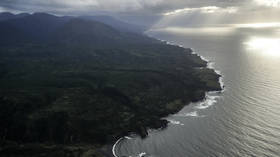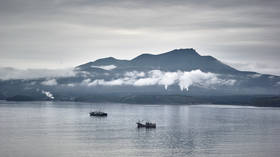Russia trying to ‘intimidate’ Japan – US

Washington’s new ambassador in Tokyo, Rahm Emanuel, has hit out at his Russian counterpart for saying Japan is hindering the resolution of a long-running territorial dispute that has prevented the two countries from signing a peace treaty to formally end WWII.
Taking to Twitter on Wednesday, Emanuel wrote, “the Russian Ambassador’s timing to intimidate Japan could not have been worse and lacks self-awareness with Northern Territories Day on Monday. Rules and respect count. The US stands with Japan and its Prime Minister for our shared values and principles.”
The US envoy, who arrived in Japan last week, was referring to recent comments by Russian ambassador Mikhail Galuzin, who told the Foreign Correspondents Club of Japan on Wednesday that recent statements by the Japanese government were “counterproductive and do not contribute to creating a positive atmosphere for dialogue between Russia and Japan.”
Replying to Emanuel in a statement on Thursday, Galuzin said “the time is right” to raise the issue and that Moscow’s position is supported by international law despite the “illegal claims” from Tokyo.
Japan had pledged to take “strong action” against Russia if it invades Ukraine, which Western leaders have been warning for months that they fear could happen. Moscow has repeatedly denied that it has aggressive intentions, and Galuzin told Tokyo that its statement interfered with efforts to resolve the territorial dispute over the Kuril Islands and finally conclude a peace treaty.
The four islands, which are known as the Northern Territories in Japan, were occupied by Soviet soldiers before the end of WWII, and the USSR was promised them by its allies at the Yalta Conference in exchange for entering the war against Japan. However, Tokyo has since said that the southernmost islands were not covered by the agreement and, while Moscow has said that it wants to sign a peace treaty and resolve the territorial dispute separately, Japan has so far refused.
Earlier this month, Foreign Minister Yoshimasa Hayashi responded to claims by his Russian counterpart that Japan was refusing to recognize the status quo following the end of the Second World War. “Our sovereignty extends to the four Northern Islands,” Hayashi said. “We intend to continue persistent negotiations on the basis of our basic position, which is the desire to sign a peace treaty after the territorial issue is resolved.”













